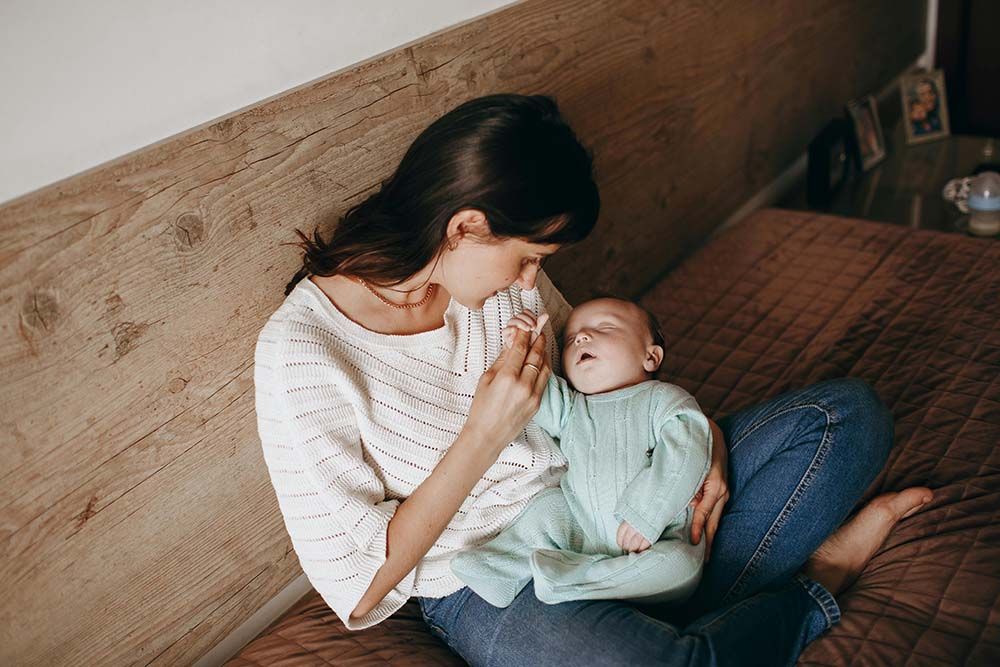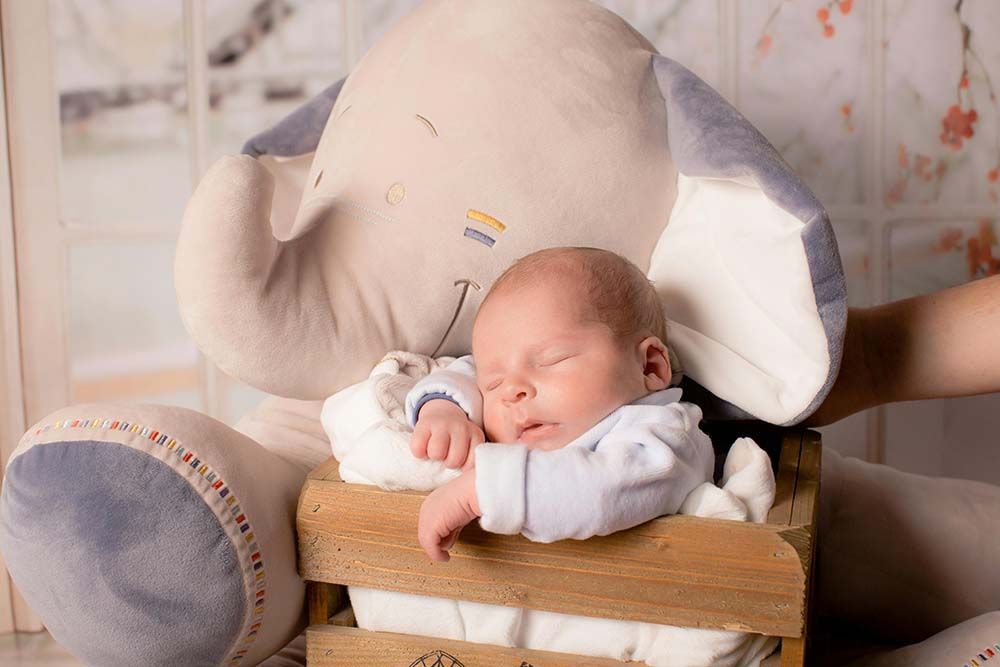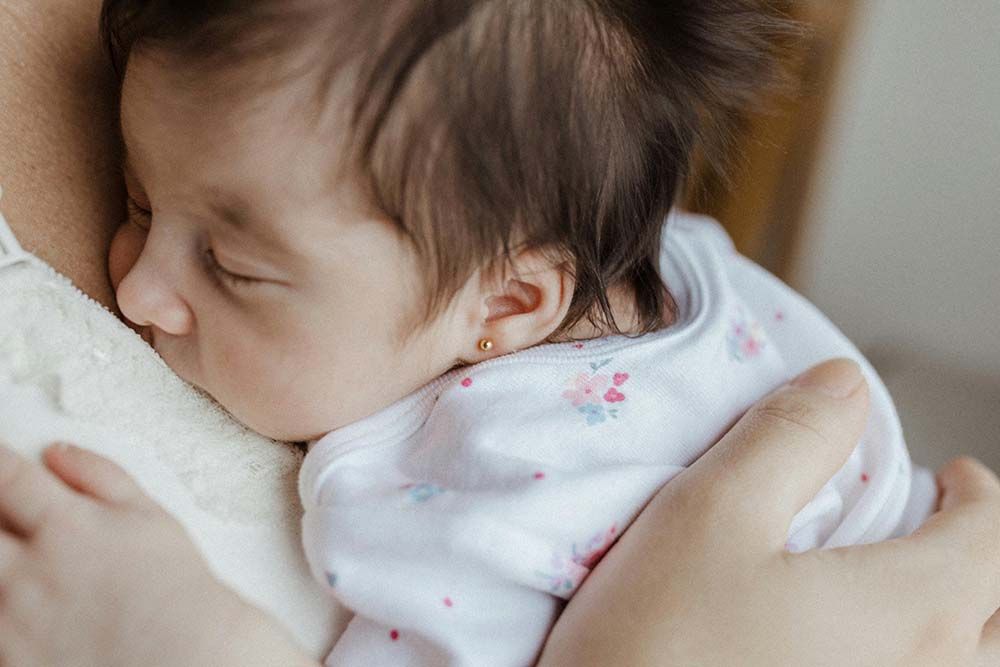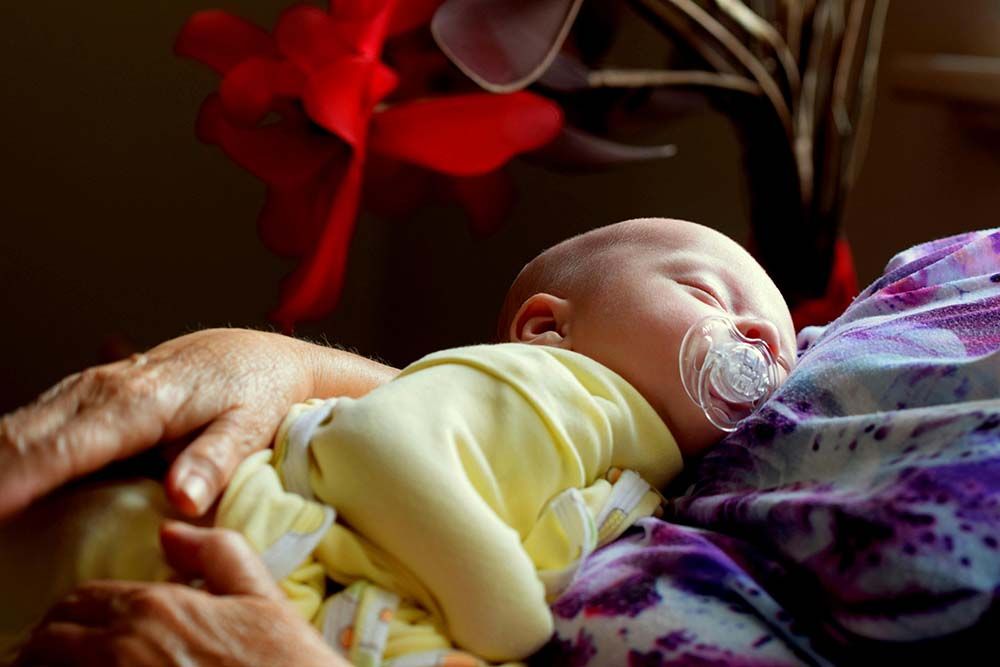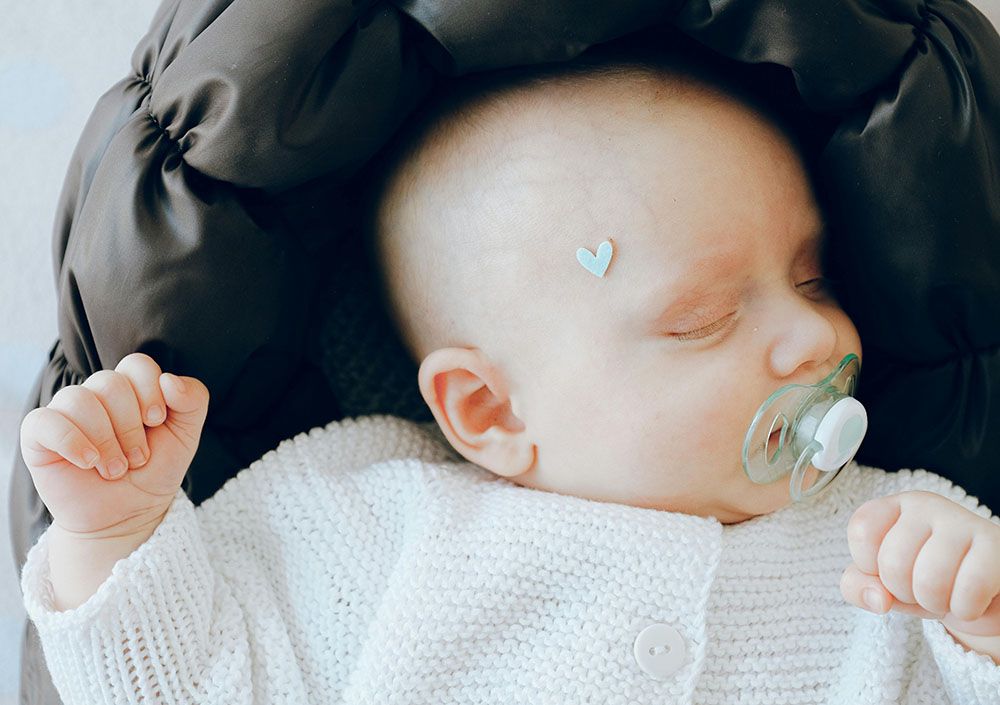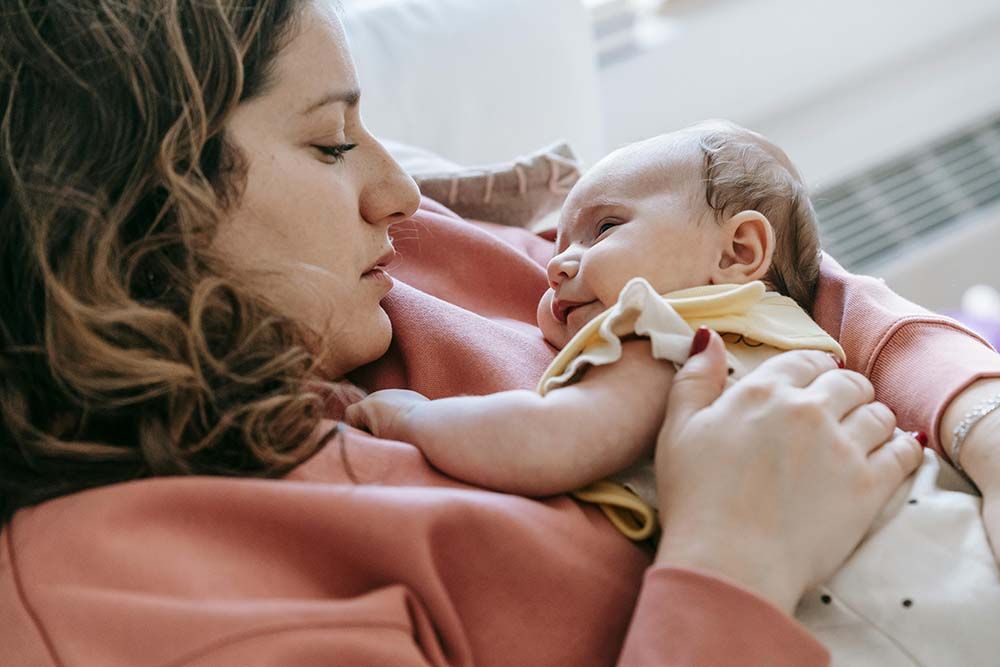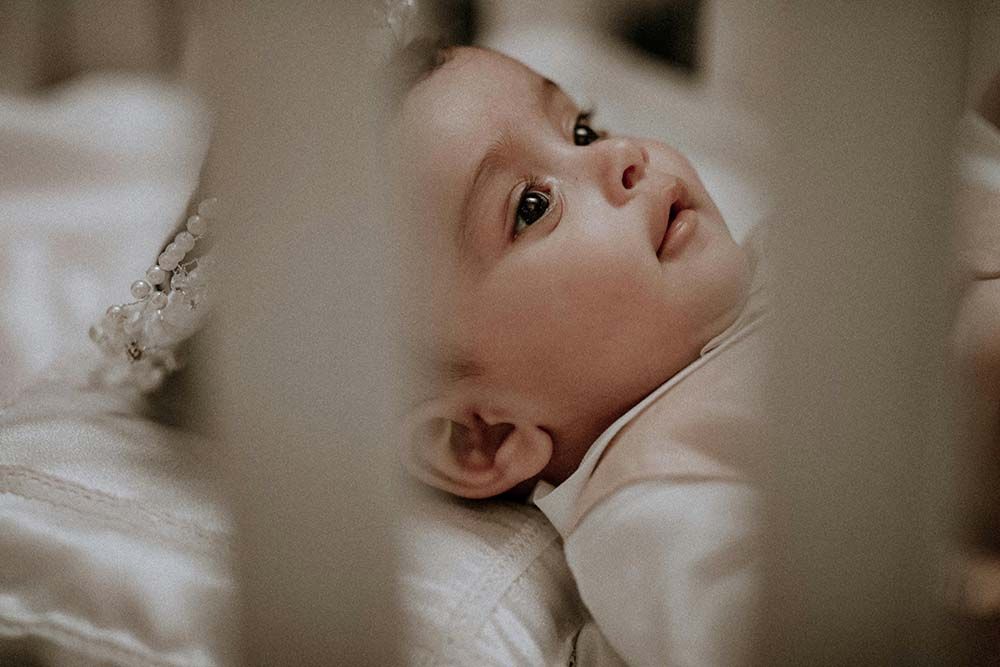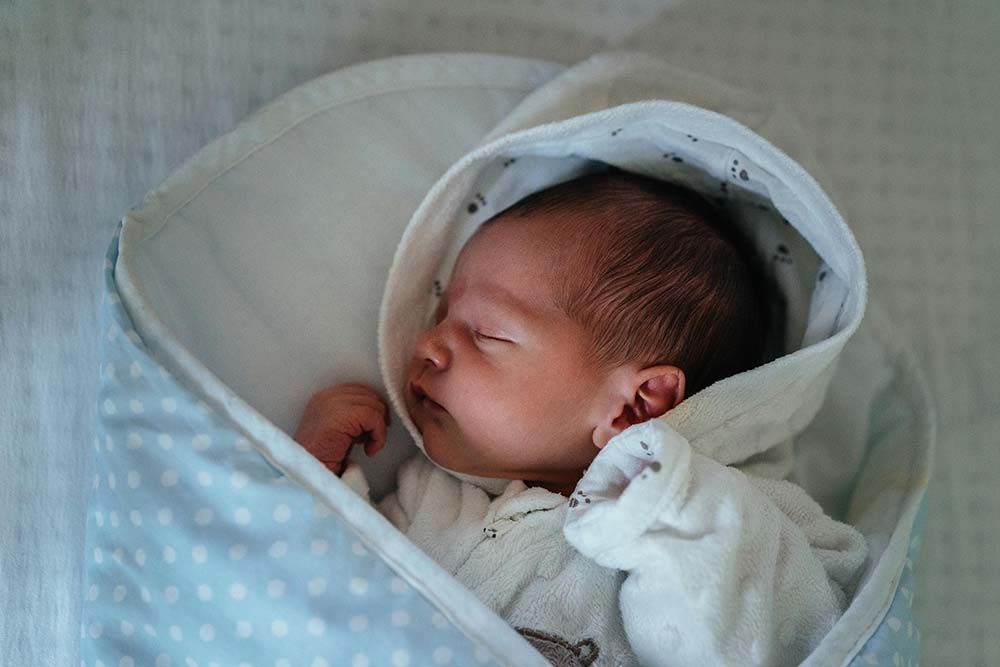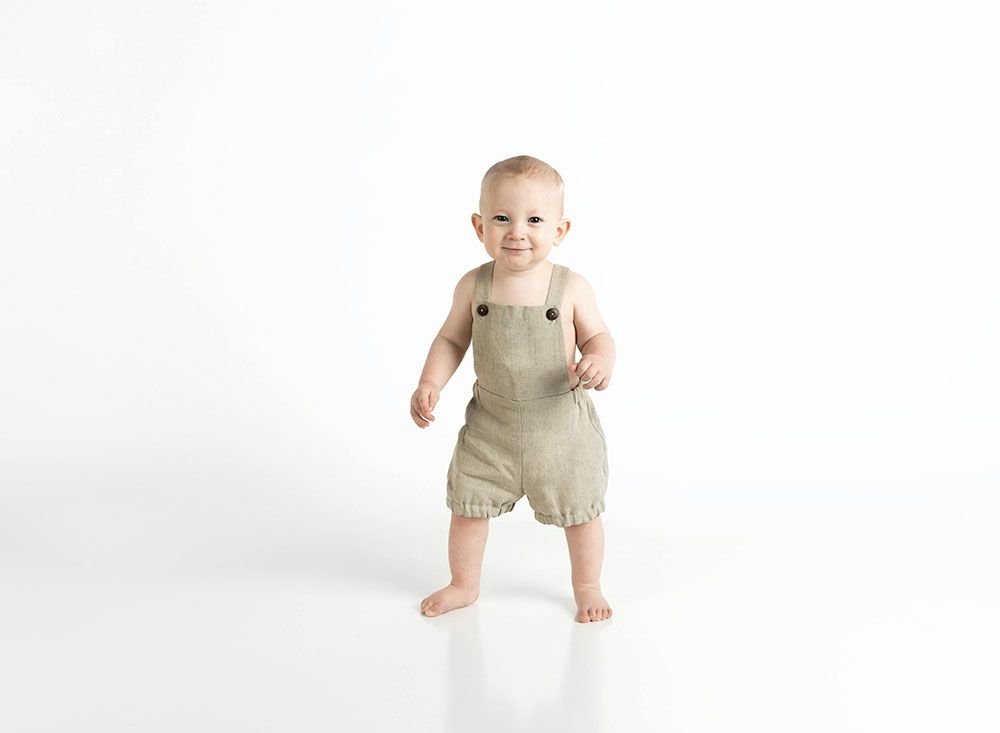

As babies reach 18 months, developmental milestones comes to a higher level in all respects, even having direct and great influence on sleeping. Babies can wake up earlier in the morning, frequently wake up at night or other sleep issues, bugging parents or the other caregivers. Although this 18 month sleep regression will not last too long, it is full of challenges for the family, especially for new parents with no experience. If you want to help your baby overcome this stage smoothly, read on for more.
IN THIS ARTICLE:
How long should an 18-month sleep
Is 18 month sleep regression real
What causes 18-month sleep regression
18 month sleep regression signs
What not to do during this stage
Sleep regression vs. growth spurt vs. teething
What are 18 Month Old Milestones?
Cognitive development: The baby's cognitive ability has significantly improved, starting to understand causal relationships and being able to imitate behavior through observation.
Language and communication: Babies’ vocabulary significantly increases, up to 10-50 words, who begin to express their needs with simple words, can understand more language commands, and use simple words or gestures to express their needs.
Social contact: The baby's social skills have increased, showing more emotional expression, enjoying interacting with others, and starting imitating social behaviors like waving goodbye, kissing, and so on.
Movement: Babies walk wore stable, their movements are more coordinated, and even can complete some complex movements such as running, jumping, and climbing.
Self care: Babies begin to show more autonomy and are able to attempt simple self-care tasks such as dressing and using utensils.
How Much Sleep Should 18-Month-Old Babies Need?
According to pediatricians and parenting experts, the ideal total sleep time for an 18 month old baby should be around 11 to 14 hours per day. Generally, this typically includes 10-12 hours of nighttime sleep and 2-3 hours of daytime nap within a 24-hour day.
At this time, many babies have transitioned to take one nap per day, while some still require 2 naps. No matter how many naps that your baby takes, make sure the nap is not too close to the bedtime at night. Otherwise, it will interfere with the nighttime sleep.
However, since each baby has different sleep needs, some babies may require slightly more or less sleep time. Parents should establish a comfortable sleep environment and maintain a regular 18 month old sleep schedule to foster healthy sleep habits for babies. But if your baby’s daily sleep time is much less than the recommended 11-14 hours range, your 18-month-old baby may experience a severe sleep regression.
Is There an 18 Month Sleep Regression?
Sleep regression is indeed a common phenomenon in infants and young children, typically occurring around 4 months, 8 months, 12 months, and 18 months of age. Although it is not an official medical term, many parents and child health experts have observed this phenomenon, and there is scientific evidence supporting its existence. Multiple studies, based on tracking records of a large number of infants and data reported by parents, show that babies may experience changes in sleep patterns during certain developmental milestones. Besides, from a neuroscience perspective, critical periods of brain development can lead to changes in sleep patterns, as increased brain activity during cognitive and motor skill development may disrupt nighttime sleep.
In short, many parenting books, websites, and experts acknowledge this phenomenon, and parents' experiences confirm it. Therefore, an 18 month sleep regression does exist and has related scientific basis.
Why Does 18 Month Sleep Regression Occur?
The reasons for sleep regression in 18-month-old babies may involve multiple factors, including physiological, psychological, and social factors. Here are some specific reasons for your reference:
Learning new skills: At this stage, babies have learning various new skills and their capacity get significantly improvement in all respect, including. cognitive skills, language, social skills, movement skills and self-care skills. Babies may become active because they may practice and consolidate newly learned skills or show their new skills at night without sleeping.
Overtiredness: Since 18 month babies are busy in exploring the surroundings and practising their newly learned skills, they can easily be overly tiredness, leading to them have difficulty in falling asleep due to fatigue.
Separation anxiety: Babies around 18 months old may experience separation anxiety, worrying about their parents leaving, which can also affect their sleep.
Sudden growth increase: During the period of sudden growth spurt, babies may feel uncomfortable and their nighttime sleep quality may be affected.
Adjustment of circadian rhythm: The baby's biological clock may be adjusted at this stage, leading to changes in sleep patterns.
Nap transition: At 18 months, babies start to transition from taking 2 naps per day to 1 nap per day. Some babies may cannot adjust to the new sleep schedule, interfering with their sleep pattern.
Unreasonable awake windows: If the awake windows are too long or too short, the baby will be too tired or too awake to fall asleep.
How Long Does 18 Month Sleep Regression Last?
Normally, it is usually a temporary phenomenon that can last from a few days to several weeks. The specific duration varies depending on individual differences and specific circumstances of the baby. Except for experiencing different milestone stages, changes in family environment, travel, illness, or other life events may also affect a baby's sleep patterns.
For most babies, it may last about 1-2 weeks. Some babies may take less or longer time to overtime this period. Some of them only need a few days to adjust their sleep patterns to back to normal, while some babies who are experiencing multiple developmental milestones or other challenges may require several weeks or even a month.
What are the Signs of 18 Month Sleep Regression?
At 18 months, babies who are experiencing sleep regressions will demonstrate a series of signs that are different than usual. According to the experiences and observations from parents and pediatricians, we have compiled a comprehensive list of signs below to help the new parents to determine whether their baby is experiencing such period through careful observation.
- Babies may wake up more frequently than usual at nighttime sleep.
- Babies become difficulty in falling asleep, even if they appear sleepy.
- Babies may cry or scream at night, making it difficult to soothe.
- Babies may resist daytime napping, shorten their nap time, or even completely give up napping.
- The overall amount of sleep time get obviously reduction, no matter what night or day time.
- Babies may exhibit irritability, emotional fluctuations, or be more clingy than usual.
- Babies may frequently seek comfort and companionship from their parents or caregivers at night.
- Night startles or nightmares may occur, causing the baby to suddenly wake up and appear scared or confused.
- Babies may take a long time to fall asleep again after waking up, even if they still feel tired.
- Sleep patterns may become irregular, such as disrupting a fixed sleep time.
- Babies may demand more food or drinks at night as they require additional energy during periods of growth spurt or cognitive development.
- An increase in daytime activity levels may make babies appear more active or energetic.
- Babies may show stronger separation anxiety, especially at night, worrying that their parents are not around.
How to Handle 18 Month Sleep Regression?
At this stage, parents can take some measures to help their babies smoothly pass through this period and restore normal sleep patterns. To do so, it can not only help babies fall back to normal sleep patterns successfully, but also help them learn to self soothe and better manage their sleep in the future.
Maintain a consistent sleep schedule:
Maintain a consistent bedtime routine and sleep schedule to help babies establish stable sleep habits. It is recommended for parents to carry out the calm activities at the same time every day, for example, taking a shower, singing, telling stories, etc.
Provide a sense of security:
Provide extra comfort and hugs before bedtime to make the baby feel safe. Also, you can give your baby a favorite plush toy or blanket as a comfort.
Reduce bedtime stimulation:
Reduce screen time and intense activity before bedtime to create a quiet and comfortable environment. You can play gentle music or use a white noise machine to help babies relax.
Provide gentle comfort techniques:
When babies wake up at night, patiently comfort them. You can gently shake the baby, pat the back, or sing a lullaby.
Adjust the sleeping environment:
Ensure that the baby's sleeping environment is safe, the temperature is appropriate, and the bed is comfortable. You can use blackout curtains to help babies fall asleep better.
Gradually cultivate independence:
Gradually encourage babies to fall asleep alone and help them learn to self soothe. You can gradually reduce the time spent with your baby before they fall asleep, allowing them to get used to sleeping on their own.
Stay active during the day:
Ensuring that babies have sufficient outdoor activities and exercise time during the day can help burn excess energy and promote nighttime sleep.
Observe dietary habits:
Pay attention to your baby's eating habits and avoid excessive liquid intake before bedtime to prevent frequent waking up at night to change diapers or go to the bathroom.
Maintain patience and calmness:
Parents need to maintain patience and calmness, and not feel discouraged or angry because of their baby's non-stop crying at night. A positive attitude helps babies feel secure.
Seek professional advice:
If your baby's sleep problems persist for a long time or seriously affect their quality of life, you can consult a pediatrician or pediatric sleep specialist for advice.
What Not to do During a Sleep Regression?
During the period of 18 month sleep regression, there are some behaviors and practices that should be avoided to prevent exacerbating the baby's anxiety and sleep problems, such as:
Frequent changes in sleep habits:
At this period, try not to frequently change your baby's sleep habits or bedtime rituals, as this can make them feel confused and uneasy. Consequently, the temporary period can be prolonged to an endless one.
Immoderate comfort:
Although babies need comfort, excessive comfort may make them overly dependent on their parents, making it difficult for them to fall asleep independently. Thus, do not pick them up or shake them to sleep every time. Instead, you should give time for babies to calm down on their own before comfort them.
Excessive stimulation before bedtime:
Avoid exposing your baby a screen or engaging in intense activities before bedtime, as these can make your baby more excited, causing them unable to fall asleep in time.
Make the baby cry for a long time:
Letting your baby cry for a long time may increase their stress and lead to greater anxiety.
Overwhelming worry or anxiety:
Parents' anxiety may have influence to the baby, causing the baby to feel even more uneasy.
Intense dependence on medication or supplements:
Do not give your baby any medication or supplements to help sleep unless advised by a doctor.
Lack of communication:
Communicate with your partner to jointly address your baby's sleep issues. If the caregivers have different methods to deal with a baby’s crying, it may confuse the baby.
Sleep Regression vs. Growth Spurt vs. Teething
During the rapid development of babies, sleep regression, growth spurt and teething may occur sequentially or simultaneously, causing babies cannot fall asleep, and leaving parents at a loss to take appropriate coping strategies. Some parents even struggle to identify whether it is a growth spurt, sleeping regression or teething. Here, we archive some specific clues and features to help parents distinguish between these three situations and take care of their baby better.
|
Symptoms |
Sleep Regression | Growth Spurt | Teething |
| Changes in appetite | No significant changes, may slightly decrease | Significant increase in appetite, frequent requests for breastfeeding or eating |
Refusal to eat or breastfeed |
| Sleep patterns | Waking up frequently at night, and hard to sleep again | More frequent daytime naps, and an increase in nighttime awakenings |
Waking up frequently at night, and hard to sleep again |
| Duration | Usually lasting from one week to several weeks | Usually lasting from 2 to 3 days, sometimes up to a week | Usually lasting from a few days to a week |
| Behavioral changes | Separation anxiety, more reliance on parental comfort | More irritability or restlessness due to hunger or fatigue | Increased irritability or restlessness due to gum pain |
|
Physical changes |
No obvious physical changes | Significant gain in weight or height | Swollen, painful or bleeding gums |
| Oral symptoms | No obvious oral symptoms | No obvious oral symptoms | Biting fingers, toys or other objects, drooling |
| Temperature changes | No obvious temperature changes | No obvious temperature changes | May have a slight increase in body temperature |
|
Other physiological changes |
No obvious physiological changes | Seeking breastfeeding or feeding more frequently | No obvious physiological changes |
|
Cognitive and motor skill development |
Such as learning to walk, speak, etc. | No obvious developmental changes | No obvious developmental changes |
Last Words
One needs to mention is that not all 18 month babies will go though sleep regression. Besides, some parents may wonder if they can start sleep training to their babies at this time. The key lies in the specific situation of the baby and the goals of the parents. If the baby shows severe anxiety or difficulty calming down, it may be considered to wait until the sleep regression period is over before conducting sleep training. After observing your baby’s condition, if you decide to start sleep training, it is recommended to choose a gentle method and closely monitor your baby's reactions. Most importantly, parents need to maintain patience and support to help their babies smoothly navigate through this 18 month sleep regression stage.





